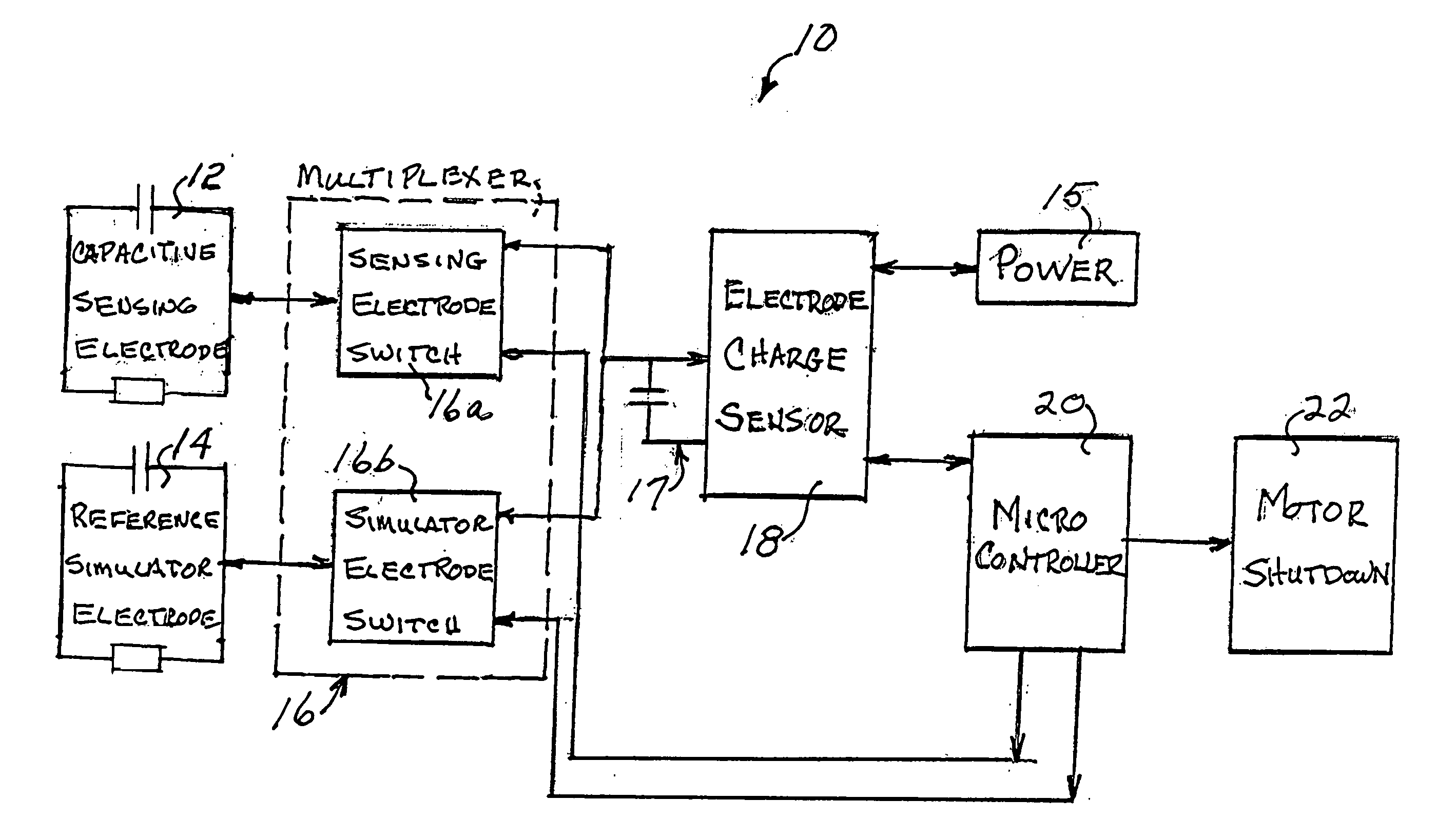Operator sensing circuit for disabling motor of power equipment
- Summary
- Abstract
- Description
- Claims
- Application Information
AI Technical Summary
Benefits of technology
Problems solved by technology
Method used
Image
Examples
Embodiment Construction
[0033] Referring to FIG. 1, an operator-sensing circuit, generally designated 10, includes a capacitive sensing electrode 12 affixed to the gripping surface of the power equipment and reference simulator electrode 14 respectively connected electrically to sensing electrode switch 16a and simulator electrode switch 16b of multiplexer 16. Charge sensor 18 may be any programmable charge-transfer sensor that does not process the capacitance electrode discharge signals and is not self-calibrating. In a specific embodiment, sensor 18 has a commercial designation of QT 300 and receives electrical power from a 3-5 volt battery 15. Sensor 18 sends information signals to multiplexer 16 upon command from microcontroller 20 every 5 milliseconds that also sends a series of commands to multiplexer 16 to turn electrode switches 16a and 16b on and off to send the information signals to electrodes 12 and 14 and in response receives an electrode discharge signal through the closed (on) switch in mult...
PUM
 Login to View More
Login to View More Abstract
Description
Claims
Application Information
 Login to View More
Login to View More - R&D
- Intellectual Property
- Life Sciences
- Materials
- Tech Scout
- Unparalleled Data Quality
- Higher Quality Content
- 60% Fewer Hallucinations
Browse by: Latest US Patents, China's latest patents, Technical Efficacy Thesaurus, Application Domain, Technology Topic, Popular Technical Reports.
© 2025 PatSnap. All rights reserved.Legal|Privacy policy|Modern Slavery Act Transparency Statement|Sitemap|About US| Contact US: help@patsnap.com



